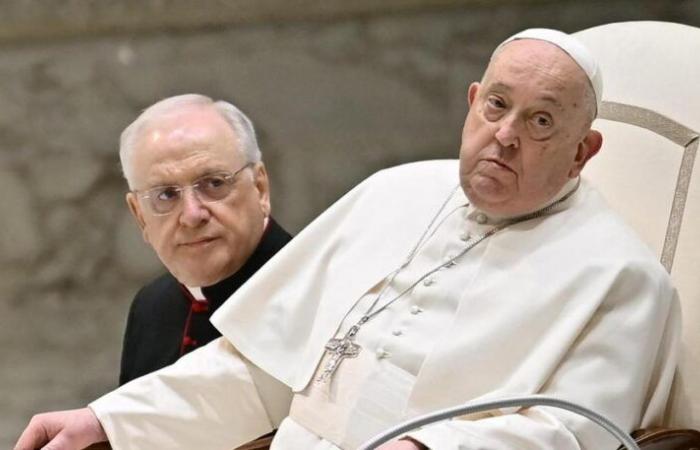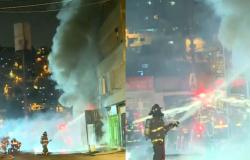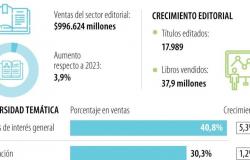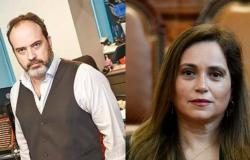At 88, Jorge Mario Bergoglio departed discreetly, as he lived much of his pontificate: without seeking prominence, without excesses, but with an indelible footprint in the history of the Catholic Church.
It was the first Latin American Pope, Jesuit and the first in centuries that did not come from Europe. But beyond the titles, he was a human pope, close, committed to the most disadvantaged and with a form of spiritual leadership that dislodged the most conservative sectors and moved the furthest from faith.
Born on December 17, 1936 in Buenos Aires (Argentina) in a family of middle -class Italian immigrants, Bergoglio was a science man rather than Sotana. Chemical training technician, his first steps in adult life were marked by analytical thinking, the study of languages and a deep social sensitivity.
At age 17, he felt the vocational call and began his way in the Society of Jesus, order to which he belonged all his life and that formed it with a strong imprint of service, poverty and intellectual commitment.
Throughout his life, Francisco accumulated anecdotes that draw the profile of a different leader. It was a young man who I danced tango in the streets of Buenos Aires, which cook for his family when his mother became ill and confessed with humor that he never poison anyone with his simple dishes.
Despite its global fame, always avoided luxury: He preferred worn shoes for traditional red moccasins; He refused to live in the apostolic palace and rejected limas and jewelry. When he assumed as Pope in 2013, instead of sitting on the throne to receive the cardinals, he greeted them standing. His first international trip did so on a commercial flight, surrounded by journalists. “Simplicity is not a weakness,” he said, “it is the shortest way to reach the heart of the other.”
He loved footballHe was a confessed fan of San Lorenzo de Almagro and had no problem showing the club’s shirt against the cameras. Nor did he hide His taste for poetryespecially for authors such as Baudelaire or Martín Fierro and on more than one occasion confessed that Literature helped him understand human dilemmas beyond dogma.
In a hyperconnected world, he never used cell or clock and avoided social networks, although his account in X accumulated millions of followers. His connection with people was direct: looks, gestures, hugs, silences, simple words with the power to change hearts.
It was a Pope who did not fear talking with frankness. “I didn’t want to be a potato,” he once laughs at a group of children. “A person who wants to be Pope does not love himself. God does not bless those ambitions.”
His spontaneity and ability to challenge the world left memorable phrases:
In July 2013, just three months after assuming the papacy, Francisco left a phrase that has become one of the most emblematic. Given the leaks in the Italian press about the existence of an alleged “gay lobby” within the Holy See, he said:
“If a gay accepts the Lord and has good will, who am I to judge it?”
In February 2017, he surprised again when referring to the bad Christians. In his statement, he affirmed that, if a person who says Christian explodes to others or leads a double life, it is best not to identify as a believer:
“It is better to be an atheist than a Christian bad.”
In June 2014, in an interview with the Italian newspaper Il Messaggero, the Pope made a reflection on the poor, noting that the communists had “usurped” the flag of the poor, a central theme of the Gospel for 20 years:
“The communists stole the flag of the poor, but that flag is Christian.”
As for the abuses within the Church, he was blunt in his position. On February 9, 2017, when referring to the sexual abuse committed by members of the clergy, Pope Francis declared that abusing children is a “disease” and stressed that the Church must strive more in the selection of future priests:
“Abuse of children is a disease.”
In September 2015, during his visit to the United States, the Pope expressed his “deep pain” for sexual abuses to minors within the Church and assured that those responsible must account for justice:
“Those responsible for sexual abuse of minors will account.”
His life was marked by the silent fight. In the Argentine dictatorship of the 70s, he acted from the shadows to protect persecuted politicians, a difficult stage that generated criticism and defenses equally.
Later, as Pope, that battle continued on other fronts: against exclusion, clericalism, abuse of power and environmental deterioration. In his encyclical ‘Laudato SI’, he called to take care of the “common house”, a message that transcended religious borders and became an emblem of global ecological consciousness.
It was also the Pope who dared to apologize: to homosexuals, to indigenous peoples, exploited women, deported migrants, victims of abuse, who were marginalized by the church itself. I did not seek to clean the institutional image, but to face the truth with humility: “I want to express my shame,” he said after knowing the abuse report in France. And he added, in a firm voice, that the Church had to become “a safe home for everyone.”
Despite his health brokenness – he was removed from the lung in his youth, he was operated on Columbus, suffered several respiratory infections and ended up using wheelchair – he never stopped working. He signed decrees, made calls to conflict zones, visited prisons and hospitals.
Even after his last hospitalization, which lasted five weeks for double pneumonia, he refused to take a break and continued with audiences and meetings.
His death, which occurred calmly at 7:35 am on Monday, April 21, was as discreet as his way of living. “He did not suffer,” witnesses said. “It was a serene death, in silence, as he wanted.” The cause of his death was by a cerebral stroke, also known as stroke or stroke.
His body will be veiled in the Basilica of San Pedro and buried in the Basilica of Santa María la Mayor, fulfilling his willingness to have a simple grave, without ornaments, with a single word: Franciscus.
The legacy of Pope Francis will not fit in the history manuals because he is still alive in the conscience of millions. He was a Pope who hugged everyone: believers and non -believers, rich and poor, children and the elderly, victims and marginalized. That built bridges where others lifted walls, which preferred the perfume of the people to the incense of power.
A man who led the Church from the Vatican marbles to the peripheries of the human soul. And that, with his death, leaves a deep echo: that of a church that can be human, compassionate and alive.






